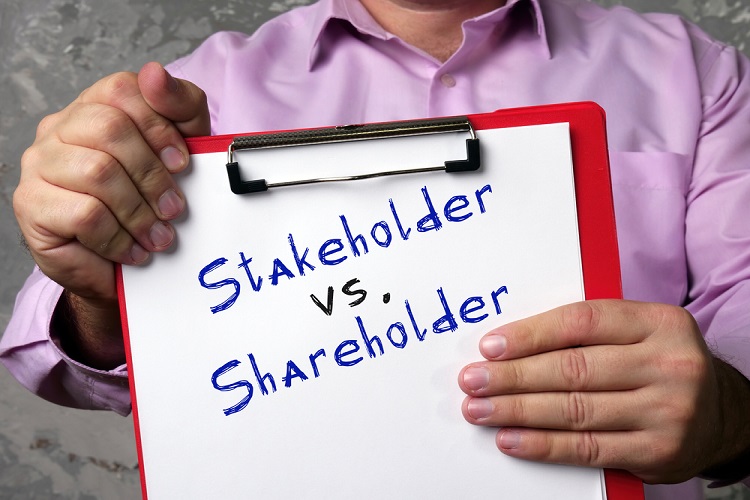What’s The Difference Between Stakeholders And Shareholders?
Everyone learned in middle school that all squares are inherently rectangles. However, not all rectangles are squares. The same is true of shareholders and stakeholders. All shareholders of a company are stakeholders. Not all stakeholders are shareholders.
It might seem like a nominal difference, but being a shareholder rather than just a stakeholder dramatically impacts how people view a company.

What Is A Stakeholder?
A stakeholder is anyone who has a stake in a company’s success. The “stake” part of stakeholders just means someone who is invested in some way with the company. If the company’s success affects someone’s life, good or bad, that person could be considered a stakeholder. This is not limited to financial success.
Each stakeholder will have a different relationship and investment with a company. Some people, like shareholders, want the company to succeed financially to make money. A company that sells its product to the business is a stakeholder because they rely on the business’s purchases. If the business stops buying from them, then the company is affected.
Another example is a community. When a local store everyone loves struggles, then it negatively affects the community. Likewise, a prominent manufacturer moving into town can put out pollution and negatively affect the community. This parasitic relationship is also a stakeholder relationship.

What Is A Shareholder?
A shareholder is simply someone that holds a share of stock in a particular company. A shareholder, or stockholder, is invested in a company’s financial success. They want a company to do well financially so the stock goes up, thus increasing the investor’s gains.
Conversely, shareholders are not as committed to the company’s success. If the company doesn’t perform well in the stock market, shareholders may sell off stock and bail on the company or repurchase the stock when the price is lower in hopes of still turning a profit. This makes their relationship with a company flimsy.
While shareholders are stakeholders, they are a specific subset of stakeholders. People often buy stock to develop a retirement portfolio. So, they want to see the price increase. Institutions that purchase stock could also be invested in the voting power stock gives them.

Why Stakeholders And Shareholders Disagree
The biggest difference between the two is their interests in the company. Stakeholders and shareholders will usually have different opinions and theories about how a company should act for success. This is because success is defined differently for each group.
Shareholders will usually define success as short-term financial gains. They want the price of their investment to increase so they may make more money. So, anything that will make the price rise looks great to them. Likewise, choices that may be good in the long term might temporarily make the stock price drop, which shareholders do not like.
Stakeholders tend to have the opposite viewpoint. Their interests are in the longevity of a company, typically. Communities, businesses, and employees prefer the company to last a long time to secure relationships, stability, and income. Their stake in the company is generally unaffected by month-to-month fluctuations in reputation and the market.

Conclusion
Shareholders are just another form of stakeholder, but they tend to disagree with how the company should be run. Shareholders want companies to succeed financially to turn a profit. If a company doesn’t increase its value, shareholders can sell stock and jump ship anytime.
Stakeholders are invested for the long haul, forming mutual relationships to secure their own future success. They are more complex, and each stakeholder will have a different definition of success. However, they are generally interested in a company’s longevity rather than short-term gains.
